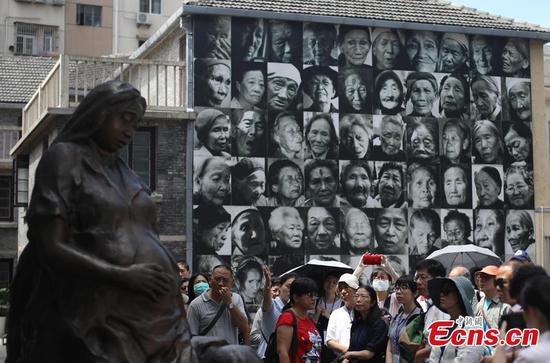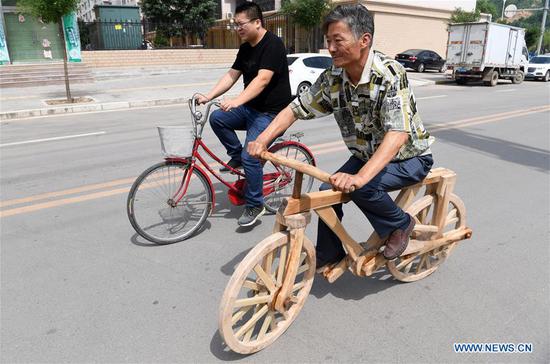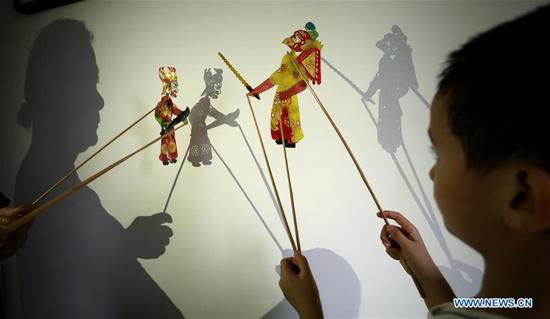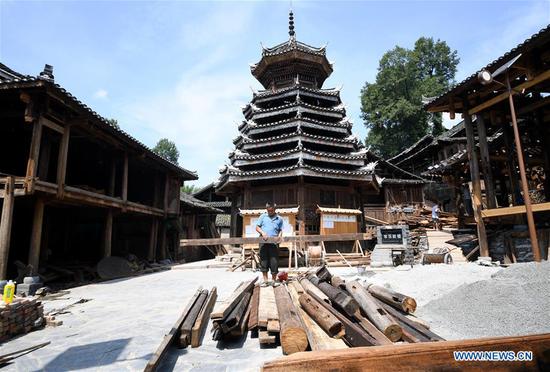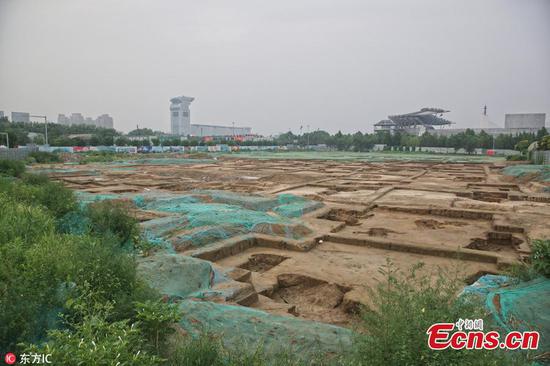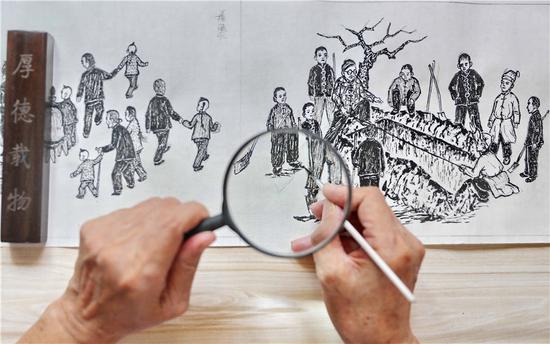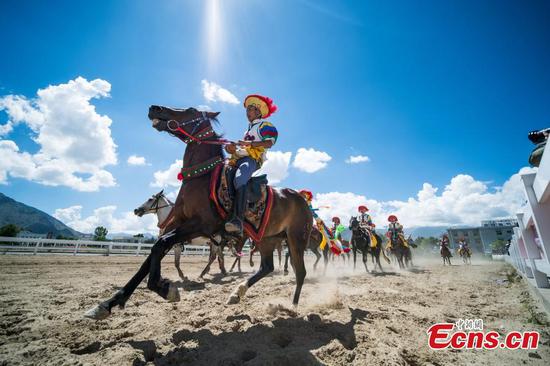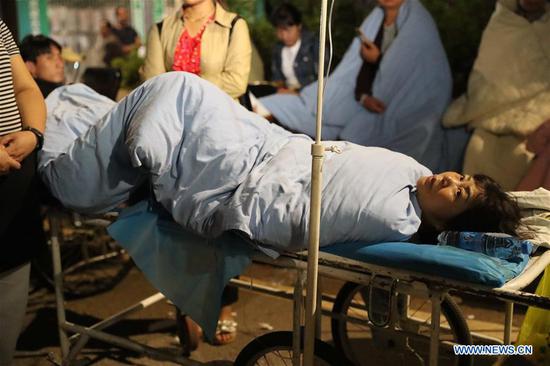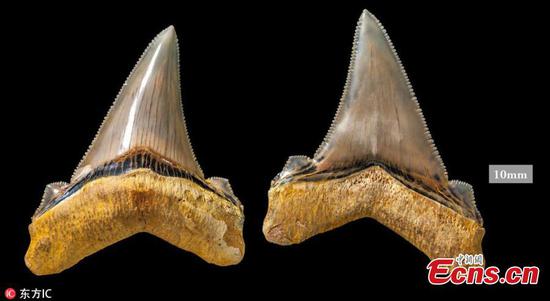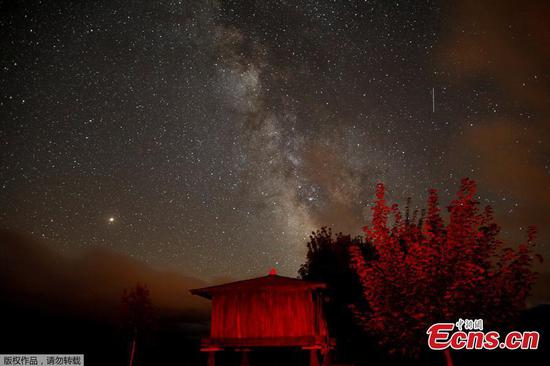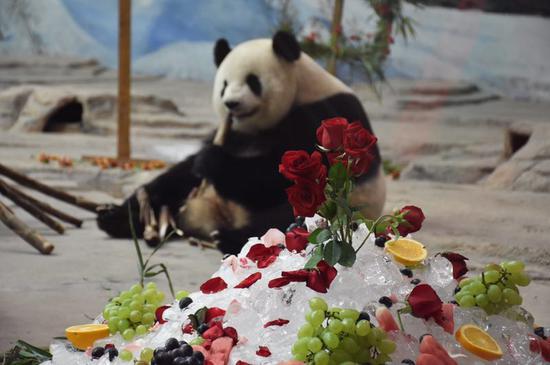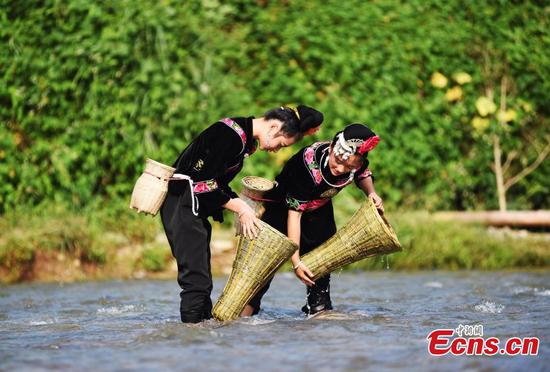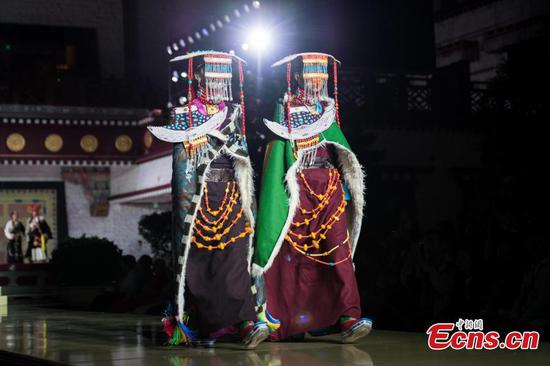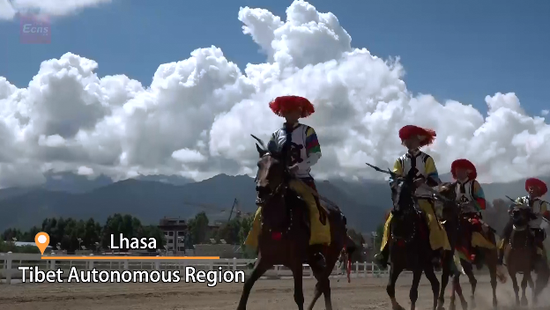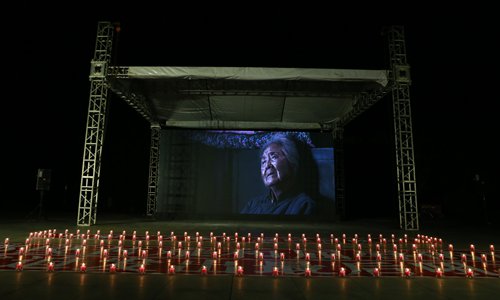
Film Great Cold is screened at the Jianchuan Museum on August 1. (Photo: Li Hao/GT)
Only 15 of Chinese 'comfort women' are still alive
○ Most women forced into sex slavery by Japanese soldiers during the war remained silent for much of their lives
○ A dedicated group of advocates persuaded some of the women to tell their stories and claim their due compensation
○ Although the advocates struggle to win an official apology and compensation from Japan failed, they vow to keep fighting, even as the final victims are passing away
The film Great Cold, telling the plight of China's "comfort women," was re-screened across the country on Tuesday to mark the International Memorial Day for "Comfort Women."
At least 200,000 Chinese women were forced into sex slavery by Japanese troops during World War II.
These women are known by the euphemistic term "comfort women."
Great Cold explores these women's difficult experiences, both during the war and after.
Their great pain and shame lasted a lifetime, and some hunched-over elderly women have chosen to take their secrets to the grave.
Now, only 15 of them are known to be alive, including two sisters in their 90s from Central China's Hunan Province.
These two sisters recently chose to talk about their experiences for the first time, said Su Zhiliang, the director of the Research Center for Chinese Comfort Women at Shanghai Normal University.
Su is one of many activists who have watched over and protected these women decade after decade.
Some activists have dedicated themselves to pushing for rights of the victims, such as Japanese lawyer Noriko Omori, Chinese lawyer Kang Jian and Chinese private investigator Zhang Shuangbing.
All of them told the Global Times that they have built close connections with these women as their guardians.
Hidden shame
Zhang, a former primary school teacher in Shanxi province, met an elderly woman, Hou Dong'e, in autumn 1982. Hou struggled and kneeled on the ground to cut wheat alone.
After learning about the humiliation as well as physical and mental trauma of the elderly woman, he realized his life mission - documenting the lives of China's "comfort women."
Over the past 35 years, Zhang has found around 300 suspected "comfort women." Over 130 of them have spoken about the Japanese invaders' crimes to him in detail. Stories of 127 of these people became the material for the film Great Cold. Over the past 16 years, Zhang has helped 16 elderly women file lawsuits using their real names in order to make the Japanese government offer an apology and compensation.
From December 16, 1937 to August 25, 1945, Japanese invaders seized Yu county in Shanxi Province, setting up over 70 "comfort stations" and forcing over a thousand women into sex slavery, resulting in disability, if not death, for most of the women.
Whenever Zhang heard any information about "comfort women," he would ride his shabby bike and inquire about the information from door to door.
His family did not understand why he would do this. In rural China, it was shameful for a village woman to acknowledge that she was a "comfort woman." They regard reputation as more important than anything else.
In the early 1990s, Zhang read that Japan might compensate Chinese wartime laborers. He thought this was the right time to claim justice for these women. Since then, elderly women started to open their hearts to him.
In 2007, the Supreme Court of Japan announced that a lawsuit launched on behalf of Chinese wartime laborers failed. This upset the families of the elderly women since there wasn't any apology or compensation. They blamed Zhang for damaging the reputation of the elderly women he represented.
On the day of the interview for this article, the last surviving "comfort woman" featured in Great Cold, Cao Heimao, passed away.
Zhang had broken his promise to the women of getting the Japanese government to apologize.
Speaking of Cao's death, he said with tears, "I lost a mother… but I will claim justice in my remaining years. I will fight as long as I live!"











